Msgr. Piero Coda, theologian, Secretary of the International Theological Commission, former Dean of Sophia University Institute, received an honorary degree from the Catholic University of Córdoba in Argentina.
A week of events marked the beginning of March 2024 at the Catholic University of Córdoba (UCC) in Argentina. These included: the Córdoba 2024 Itinerary Seminar, Jesuit University and Trinitarian Anthropology, and the conferral of an honorary doctorate on Msgr. Piero Coda, theologian, Secretary of the International Theological Commission, and former Dean of the Sophia University Institute. Other related events made known the thought and contribution of Msgr. Coda, which is not limited to anthropology and theology, but reaches out to the 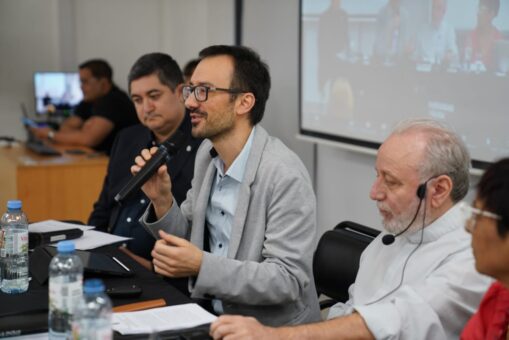 Church in its synodal journey and that of ecumenical and interreligious dialogue.
Church in its synodal journey and that of ecumenical and interreligious dialogue.
The Trinitarian Anthropology Seminar was held from March 4 to 6. The study group, which has been active for 11 years, consists of 14 people, women and men, Franciscans, Jesuits, priests, religious, focolarini and lay people from different church movements. Sonia Vargas Andrade, of the Faculty of Theology, San Pablo of the Bolivian Catholic University, said: “We met to reflect on the path that a Latin American theologian should follow in dialogue with European theology, particularly Trinitarian Anthropology, taking into account what is typically ours, namely the plurality”. The seminar concluded by highlighting that the distinctive element of Trinitarian Theology – the subject of the group’s study – is precisely unity in plurality: “the other’s thinking is as good as my own, I have to think from the other and in the other”, added Vargas Andrade.
Msgr. Piero Coda shared his first-hand experience and his view of the first session of the synodal assembly, in which he participated as a member of the Theological Commission of the General Secretariat of the Synod of Bishops. Coda defined the first session as a pause to learn how to meet, listen to each other and dialogue in the Spirit. And he added: “The journey has just begun. Patience and perseverance must go hand in hand with wisdom and prudence, but also with enthusiasm and the courage to take risks”.
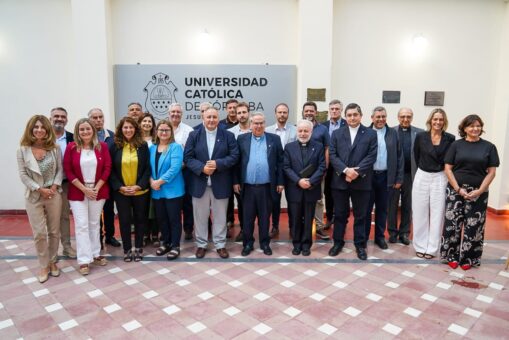 Dr. Tommaso Bertolasi, professor at Sophia University Institute in Loppiano (FI), closed the discussion by addressing the theme “youth and synodality,” stressing that young people experience the absent God: “God is experienced as the absent one, the one who is not there”. Therefore, it is necessary to consider the experience of Jesus’ abandonment on the cross. “It is right there, in death and resurrection, that God enters every human experience: from that moment on, there is no more distance from God, because God is in the absence of God”. From this thesis he deduced several implications for the church in general, especially for youth ministry.
Dr. Tommaso Bertolasi, professor at Sophia University Institute in Loppiano (FI), closed the discussion by addressing the theme “youth and synodality,” stressing that young people experience the absent God: “God is experienced as the absent one, the one who is not there”. Therefore, it is necessary to consider the experience of Jesus’ abandonment on the cross. “It is right there, in death and resurrection, that God enters every human experience: from that moment on, there is no more distance from God, because God is in the absence of God”. From this thesis he deduced several implications for the church in general, especially for youth ministry.
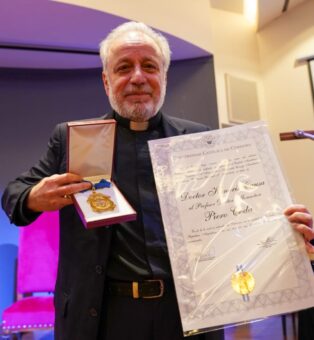 March 6 was the day of the conferral of the honorary doctorate to Msgr. Piero Coda. On this occasion, Cardinal Ángel Rossi S.J., Archbishop of Córdoba, called Piero Coda a “pilgrim of truth, who lived his life in the spirit of exodus and this has led him to leave his own ‘land’ in order to put his thought and theological insights in permanent dialogue with different cultures, with those who do not profess an explicit faith or with other disciplines”.
March 6 was the day of the conferral of the honorary doctorate to Msgr. Piero Coda. On this occasion, Cardinal Ángel Rossi S.J., Archbishop of Córdoba, called Piero Coda a “pilgrim of truth, who lived his life in the spirit of exodus and this has led him to leave his own ‘land’ in order to put his thought and theological insights in permanent dialogue with different cultures, with those who do not profess an explicit faith or with other disciplines”.
Father Gonzalo Zarazaga S.J., Director of the UCC Doctoral Program in Theology, in presenting Coda’s contribution, said that “Piero Coda’s Trinitarian Ontology opens us to the intimacy of the Triune God and 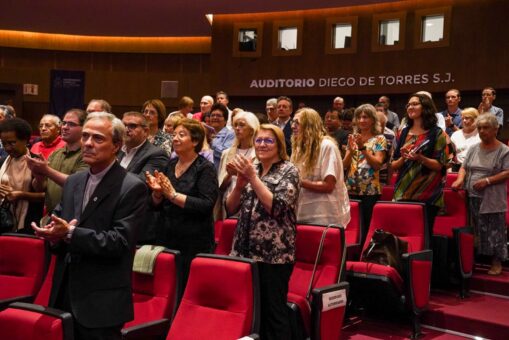 invites us to participate in his love in fullness”.
invites us to participate in his love in fullness”.
Rabbi Silvina Chemen, through a video message, expressed her affection, admiration and gratitude to Piero Coda for his work in strengthening interreligious ties with the Focolare Movement
In his words of gratitude, Msgr. Piero Coda said he considered the recognition he received as an appreciation of the style of understanding and implementation of philosophical and theological work, which is proving to be highly relevant in the process of synodal and missionary reform in which the Church is engaged under the leadership of Pope Francis. He added, “It’s about learning from each other, listening together to what the Spirit is saying to the churches: in exchanging the gifts of each other’s experiences of inculturation of faith and mission, of which our communities and cultures are bearers”. His lectio magistralis was entitled. “Inhabiting the reciprocity of the Father and the Son in the Holy Spirit to revive the meaning and destiny of history”.
María Laura Hernández
Photo: courtesy of UCC and Guillermo Blanco


 Italiano
Italiano Español
Español Français
Français Português
Português
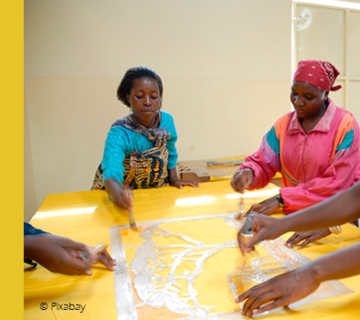



gratidão eterna, ao eterno Pai, pq somos uma família e tbm compartilhamos o amor recíproco com nosso próximo.